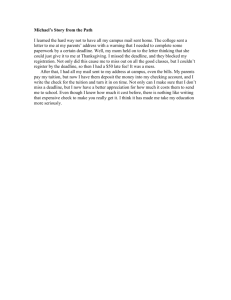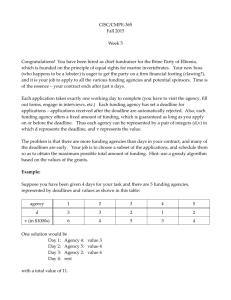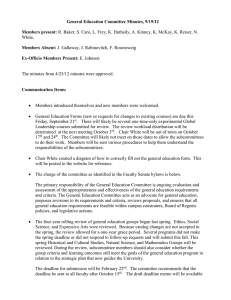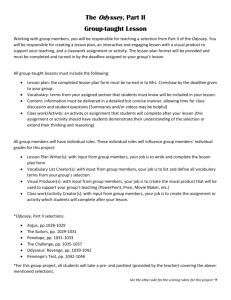American Studies 221 Migration Since World War II
advertisement
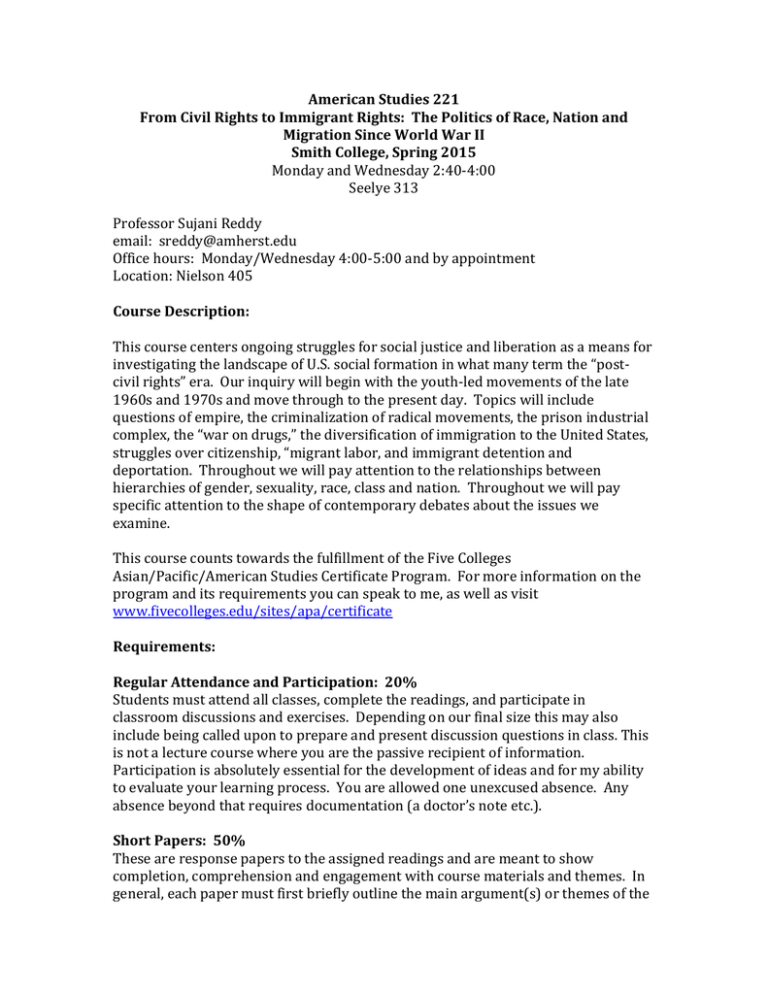
American Studies 221 From Civil Rights to Immigrant Rights: The Politics of Race, Nation and Migration Since World War II Smith College, Spring 2015 Monday and Wednesday 2:40-4:00 Seelye 313 Professor Sujani Reddy email: sreddy@amherst.edu Office hours: Monday/Wednesday 4:00-5:00 and by appointment Location: Nielson 405 Course Description: This course centers ongoing struggles for social justice and liberation as a means for investigating the landscape of U.S. social formation in what many term the “postcivil rights” era. Our inquiry will begin with the youth-led movements of the late 1960s and 1970s and move through to the present day. Topics will include questions of empire, the criminalization of radical movements, the prison industrial complex, the “war on drugs,” the diversification of immigration to the United States, struggles over citizenship, “migrant labor, and immigrant detention and deportation. Throughout we will pay attention to the relationships between hierarchies of gender, sexuality, race, class and nation. Throughout we will pay specific attention to the shape of contemporary debates about the issues we examine. This course counts towards the fulfillment of the Five Colleges Asian/Pacific/American Studies Certificate Program. For more information on the program and its requirements you can speak to me, as well as visit www.fivecolleges.edu/sites/apa/certificate Requirements: Regular Attendance and Participation: 20% Students must attend all classes, complete the readings, and participate in classroom discussions and exercises. Depending on our final size this may also include being called upon to prepare and present discussion questions in class. This is not a lecture course where you are the passive recipient of information. Participation is absolutely essential for the development of ideas and for my ability to evaluate your learning process. You are allowed one unexcused absence. Any absence beyond that requires documentation (a doctor’s note etc.). Short Papers: 50% These are response papers to the assigned readings and are meant to show completion, comprehension and engagement with course materials and themes. In general, each paper must first briefly outline the main argument(s) or themes of the readings. Your response should develop from this summary and conclude with questions, concerns or further reflection. You will have five of these due over the course of the semester. The first one will be on Assata, as indicated on the syllabus. For the next three you must choose one day’s worth of readings to write on before the deadline for the reading response, as indicated on the syllabus. You will be given a prompt at the beginning of each section. The last response is on How Does It Feel to be a Problem? You are to hand your responses in class on the day that your chosen reading is due, not by the deadline for that section. Please plan ahead. Your reading responses will not be graded individually but as a whole, at the end of the semester. This means that you will hand them all back to me and I will give you a grade for all five together. Final Project: 30% The final project can take many forms depending on class size, composition, and conversation. More details to come. Required Texts (available at the Grécourt Bookshop): Assata Shakur, Assata: An Autobiography Moustafa Bayoumi, How Does It Feel to Be a Problem: Being Young and Arab in America Recommended: Michelle Alexander, The New Jim Crow: Mass Incarceration in the Age of Colorblindness Week 1 Monday Jan 26, Jan. 28 Intro/Remapping Civil Rights: the Young Lords Screening: Pa’lante, Siempre Pa’lante (Iris Morales, dir.) Week 2 Feb. 2, 4 Black Radicalism on Trial I February 2: Assata Shakur, Assata: An Autobiography, through Chapter 5 February 4: Assata, through Chapter 10 Week 3 Feb. 9, 11 Black Radicalism on Trial II February 9: Assata, to the end February 11: Assata discussion cont. First Reading Response Due in Class Week 4 Feb 16, 18 (Rally Day) The Possessive Investment in Whiteness George Lipsitz, Possessive Investment in Whiteness: How White People Profit From Identity Politics, selections Week 5: Feb 23, 25 “Law and Order” Michelle Alexander, The New Jim Crow, Chapter 3, “The Color of Justice,” and Chapter 5, “The New Jim Crow” Week 6 Feb. March 2, 4 From “Law and Order” to the International Monetary Fund March 2: Michelle Alexander, The New Jim Crow, Chapter 6, “The Fire This Time” Second Reading Response Deadline March 4: Life and Debt (Stephanie Black, dir.) Week 7 March 9, 11 Structural Adjustment and the Hip-Hop Generation Jeff Chang, Can’t Stop Won’t Stop: A History of the Hip-Hop Generation, Loop 1 ********Spring Break: Sat. March 14 to Sunday March 22************ Week 8 March 23, 25 Feminization of Labor Migration March 23: Grace Chang – “Global Exchange: The World Bank, “Welfare Reform, and the Trade in Migrant Women” and “Immigrants and Workfare Workers: Employable but “Not Employed” from Disposable Domestics: Immigrant Women Workers in the Global Economy March 25: Third Reading Response Deadline Week 9 March 30, April 1 Crimmigration Families for Freedom, “Against Deportation and Delegalization” Harsha Walia, Undoing Border Imperialism, selections Week 10 April 6, 8 Immigrant Rights Now Material related to 2006 protests, TBA Oscar Martinez, The Beast: Riding the Rails and Dodging the Narcos on the Migrant Trail, selections Week 11 April 13, 15 Keep on DREAMing? Material on youth movements for migrant justice, TBA Shailja Patel, Migritude, selections Fourth Reading Response Deadline Week 12 April 20, 22 How Does It Feel to Be a Problem? Moustafa Bayoumi, How Does It Feel to Be a Problem? Being Young and Arab in America Week 13 April 27, 29 How Does It Feel to be a Problem? Cont./Conclusion Moustafa Bayoumi, How Does It Feel to Be a Problem? cont. April 27: Fifth Reading Response Deadline
